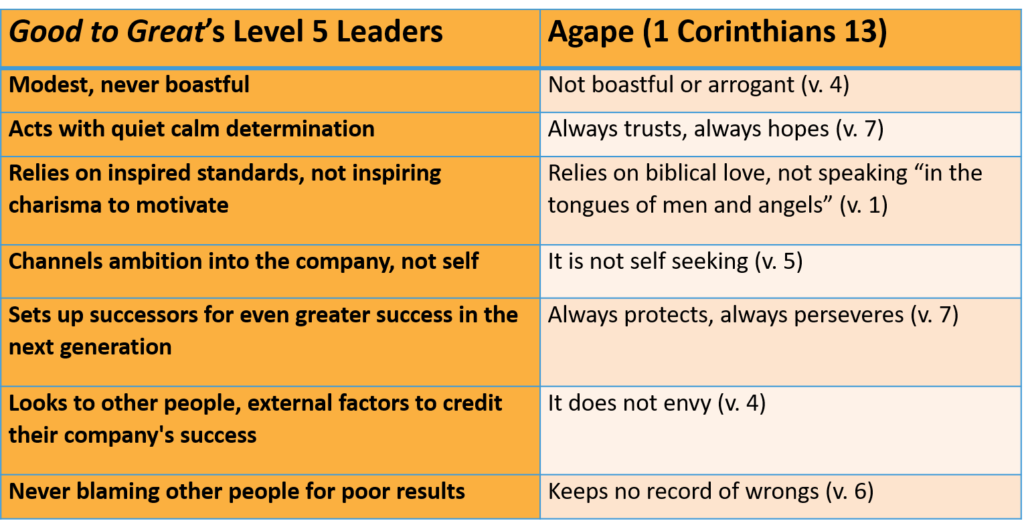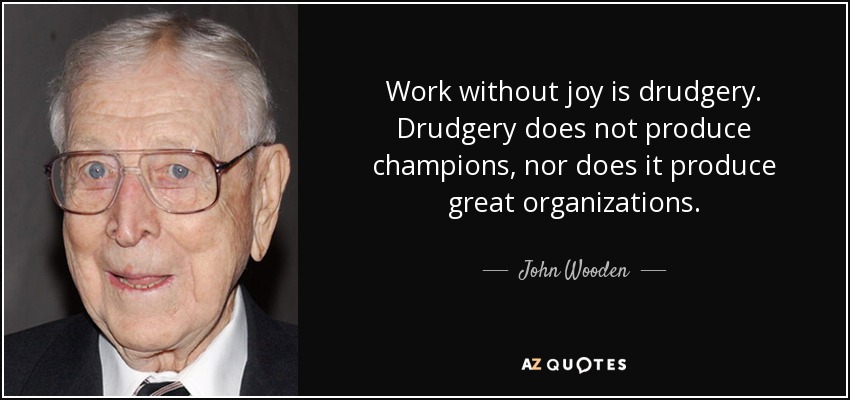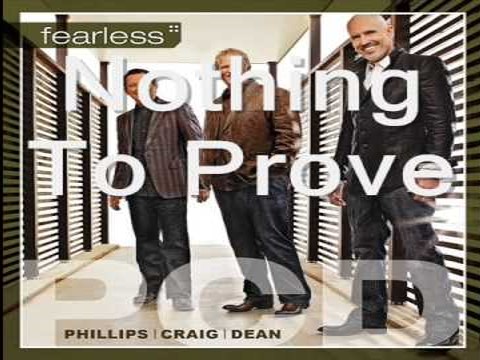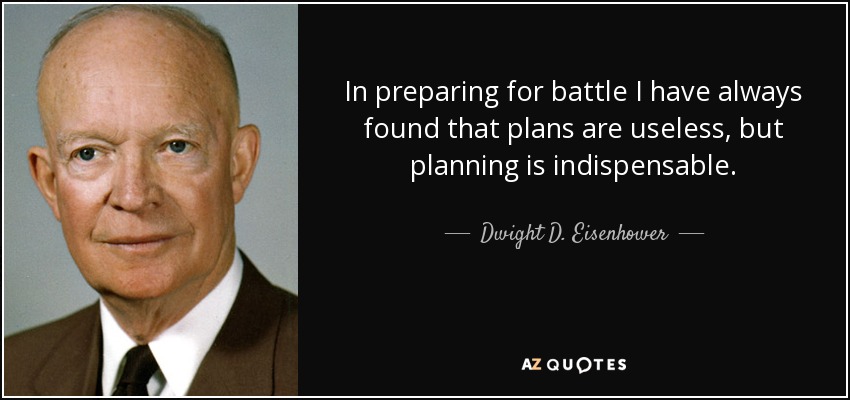Click here to return to Blog Post Intro.

When my Mom first learned that I was putting together a talk on leadership aligned with the Fruit of the Spirit, she was really excited. She pointed out that Galatians 5:22-23 was the supporting scripture for my name from the “Name Book.”
Brady’s 10 Leadership Tips
Let’s get started…
What do you think the Lord sees when He looks at your life? He does not need our strengths, our talents, or our plans; He simply wants our willing, obedient hearts. If we make our lives available to Him, He will, in turn, strengthen, empower, and equip us to accomplish His will so that the watching world will see His love. I believe effective leadership starts there…with obedience to God and following Jesus Christ.
Now, let’s explore 10 different ways to improve your leadership, as you shoot for the stars!
1. Lead Yourself
I like to say that your most powerful leadership tool is a mirror because I think to be effective as a leader, you have to know who you are.
But instead of just seeing ourselves in the mirror, we should ask ourselves, “How does God view us and our potential?” I like this perspective of 2 Corinthians 3:18:

For an effective self-assessment, you need complete honesty. Be honest with yourself. Ask others to be honest with you. What do you think you do well? What do people around you recognize that you do well? In coaching and counseling people over the years, I’ve found that many people don’t immediately recognize all the strengths that they have…or they may not know how to express those strengths…
I’ve heard it said that if you master the art of leading yourself, you lay the foundation for helping others do the same…
As for me, I was profoundly shaped by my Father & Grandfather—Paw Paw & Pappy’s Values
- Integrity: Do what I say
- Excellence: Do my best
- Improvement: Get better over time

Both were public servants with the Corpus Christi Army Depot. From them, I learned these values and the importance of balancing work, family, and church responsibilities.
What about you? Who are your role models? What are their values? What are your own values?
2. Everyone Contributes…Success Takes a Team (Love)
John Maxwell says, “Nothing of significance was ever accomplished by an individual acting alone.” And “It takes teamwork to make the dream work.”
The challenge for leadership isn’t always about getting the best people; there are many talented and innovative professionals. The real challenge often lies in encouraging high-performing people to work together as a team.
Agape (Unselfish Love): Foundational Fruit
Leadership starts with the Love you have for your team. It’s best demonstrated, not spoken. It’s taking the time to know your team members and their goals.
Interestingly, Jim Collins’ Good to Great, written 15 years ago and selling 4 Million copies, described “Level 5 Leaders” that help organizations move from Good to Great. See how his descriptors align with the Love Chapter (1 Corinthians 13):

3. Ask Questions…Don’t Give Answers (Gentleness)
As John Maxwell says, “Good Leaders Ask Great Questions.” For my team members, I want to know what they would do. What do they think? I don’t want to know what they think my boss or I would do. I’ve found that if I approach leadership with more questions than answers, it spurs on more creativity and innovation from the team.
Gentleness
This fruit is the mark of humility, meaning leniency (generally of a king or ruler). It is not an expression of weakness; rather, it’s gracious restraint and an outward expression of patience. A gentle approach seeks to understand others. Gentleness is responding whereas a lack of Gentleness is reacting…
As Frances de Sales (16th Century Christian Saint) put it, “Nothing is so strong as gentleness. Nothing is so gentle as real strength.”
4. Do What You Love…Love What You Do (Joy)
More than fifteen years ago, I used the FranklinCovey Mission Statement Builder (while I used the paper version, they now have a nifty online tool – Mission Statement Builder).
Guided by their process, I came out with my personal mission – “To be a Leader wherever I am and improve Leadership wherever I go”…Laurie Beth Jones’ The Path: Creating Your Mission Statement for Work & Life suggests these 3 criteria for a Mission Statement:
- No more than a single sentence long
- Should be easily understood by a 12 year-old
- Should be able to be recited by memory at any time
Based on this, I’ve shortened my mission statement to “Improve Leadership Wherever I Go…”
Like many mission statements, those words may not seem much to you…but for me, they provide clarity about the types of opportunities I should pursue. More importantly, my personal mission gives me a reason not to pursue some opportunities…
According to the FranklinCovey Web Site, “Your mission statement becomes your constitution, the solid expression of your vision and values. It becomes the criterion by which you measure everything else in your life.”
Joy
This fruit comes from the Greek word “chara”, which means delight of the mind from the consideration of a present or assured possession of a future good. It’s not an emotion but an enduring quality of a person. It’s different from happiness that you feel at a certain time or based on something that makes you happy.

“Prayer is the method and the Holy Spirit is the mechanism whereby God has given us the ability to discern his direction for our lives.” – Richard Stearns in Unfinished
It all starts with a dream. What’s yours? It draws on our talents and gifts. It appeals to our highest ideals. It sparks our feelings of destiny. It is inseparably linked to our purpose in life. The dream starts us on the success journey. So what’s your dream?
5. Enjoy the Journey (Faithfulness)
In 1997, I went on a bus trip with men from my church to attend Promise Keepers’ “Stand in the Gap” event in Washington, D.C. with an estimated one million men. On the bus ride, our leader encouraged young men to seek out a mentor. Ever since then, mentoring has been an important part of my personal and professional development. In fact, I’ve blogged about my Mount Rushmore of Mentors.
Who is on your Mount Rushmore of Mentors? If you can’t name the people who have significantly contributed to your growth, get a mentor today!
Faithfulness
This fruit is based on the Greek Pistis, meaning that one considers something to be true and worthy of trust. It is acting based on what you know to be true—even when your emotions or fears make you doubt it. Faithfulness is perseverance (“steady hand”) in the face of peer pressure, disrespect or contempt, temptation to cut corners, distractions, busy-ness, or weariness.
6. Resolve Conflict Directly (Patience)
This is where I encourage leaders to use their Most Powerful Leadership Tool. In any conflict, always look in the mirror first. How did you contribute to the situation? Were your expectations clear? Did you provide all the support needed for success?
At NASA, we’ve long emphasized the philosophy of Resolving Conflict at the Lowest Level. I’ve found this to be an effective strategy at work and in life. When we’ve had problems at our kids’ school, the common approach is to go talk to the Principal. Applying this principle means talking with the teacher first. We’ve resolved a number of issues—and often better understood the teacher’s perspective—very effectively this way…it’s a good life principle.
Patience
Patience is based on the Greek Makrothymia, which describes patience with people. This is not about being timid and letting others walk all over you. It’s when you have the ability & freedom to react to something, but choose not to. It’s not describing a patience with circumstances. Sometimes leaders need to be impatient with circumstances—especially when you can improve them.

7. Show Discipline (Self-Control)
A lot of people measure success by achievement. They are driven to work harder, faster, and smarter; log more hours; and sacrifice other pleasures. Many success-driven people arrive at their destination disillusioned and unfulfilled. At the root of the world’s view of success is the insatiable quest for more.
According to The New York Times on the Web, scientific research says, “Not only does having more things prove to be unfulfilling, but people for whom affluence is a priority in life tend to experience an unusual degree of anxiety and depression as well as lower overall level of well-being… Affluence, per se, does not necessarily result in an unsatisfying life. Problems are primarily associated with ‘living a life where that’s your focus.’ ”
Affluenza can best be described as a painful, contagious, socially transmitted condition of overload, debt, anxiety, and waste resulting from the dogged pursuit of more. We now work more hours each year than do the citizens of any other industrial country, including Japan. In Japan, they have a term for “death by overwork” – Karoshi. In fact, 95% of American workers say they wish they could spend more time with their families. If you have a family, like me, you know how fast they grow up…
I’ve blogged about a couple of different books that provide helpful perspective and tips: Simplify and Margin.
A couple of maxims have helped me put work in perspective:
- Work will take as much as you’re willing to give it.
- Avoid “More On” Behavior: Our tendency to take more & more work on until we break.
Ultimately, it is your responsibility to set guidelines and boundaries to manage your work-life fit.
Self-Control
This fruit is from the Greek Enkrateia, which was a key ingredient to noble character—the power to control yourself and your decisions—in self-discipline. Self-control is consistently demonstrating other Fruit of the Spirit. It’s putting our love for others over our selfish desires and embracing a peace that keeps us steady and content. Self-control is a key to determining how others perceive Christianity…
“A man without self-control is like a city broken into and left without walls.” Prov. 25:28
8. Help Others Win (Kindness)
In developing people, don’t just focus on first impressions or what you’ve heard from others. Look at their potential. As a first-line supervisor, I would categorize my people as “A-players”, “B-players”, and “C-players”. What I’ve come to understand is that I wasn’t doing the best by my team members to help them improve when I categorized them that way.
Many leaders think that only certain individuals can step up and generate innovative ideas. My experience has shown that almost everyone wants to step up and take the initiative and generate ideas that make the contribution.
How much responsibility do you give your people? Do you trust them? If you treat people like leaders, they’ll step up as leaders. Treat them as subordinates, and they’ll act like subordinates.
Kindness
This fruit is from the Greek Chrēstótēs, meaning helpfulness, benevolence, and friendliness. It’s a daily demonstration of love. Look for opportunities to deliver a random act of kindness and help others win!
9. Inspire Others…Your Way (Goodness)
What is your leadership style? When I was in NASA’s Leadership Development Program eight years ago, I was encouraged to “Be Loud”. Then, I picked up a copy of Tony Dungy’s book Quiet Strength , which is the best descriptor of my leadership style. He explained how he used a quiet style as a Super Bowl-winning football coach. While there are times I need to speak up more, I came to recognize my style as effective.

Are you introverted like me? The books Quiet: The Power of Introverts in a World that Can’t Stop Talking and Quiet Influence are a couple of other good resources.
Goodness
The fruit is based on the Greek agathosune, which means holding high moral values.
Part of goodness is knowing that you are a sinner. As a fruit of the spirit, goodness gives us eyes to see where something wrong has crept into our lives or spheres of influence and encourages us to help make it right. Goodness is the intentional choosing and following of moral good.
10. Prepare for the Future (Peace)
How are you preparing yourself for the future? I like the advice that says to make a plan, but stay open to the possibilities. In this season of life, I’m convinced that a Sabbath Rest is a good thing for Executive-level leaders. For me, seven years in a single executive-level role would be too long, I’m coming up on my second year as HR Director at the Johnson Space Center, so I’m making preparations for other possibilities down the road. At the same time, I’m staying open to possibilities that God may put in front of me…
Whitney T. Kuniholm, president of Scripture Union/USA, takes a fast-paced journey through the book of Acts in his book, The Essential Question, focusing on the question Paul asked Jesus: “What shall I do, Lord?” (Acts 22:10). The experiences of the first Christians show us that God has a mission, an essential mission, for all of his people―whether it is to serve him faithfully in the marketplace, in the home, in school, in the military or someplace else.
We should always remember what I tell High School students and others that deciding who to be is more important than deciding what to do. Your character—the kind of person you are—will determine what kind of influence you have in whatever career you choose.
Peace
The Hebrew Word is Shalom, meaning completeness, soundness, and well-being. It is contentment and the cure for stress. “If joy is like the sun bursting through the clouds on a gloomy day, peace is like a constant ocean breeze that brings comfort and refreshment…”
Peace with God is healthily expressed in humility and contentment and brings power to your leadership.
Recap
Out of This World…
- Lead Yourself
- Everyone Contributes…Success Takes a Team (Love)
- Ask Questions…Don’t Give Answers (Gentleness)
- Do What You Love…Love What You Do (Joy)
- Enjoy the Journey (Faithfulness)
- Resolve Conflict Directly (Patience)
- Show Discipline (Self-Control)
- Help Others Win (Kindness)
- Inspire Others…Your Way (Goodness)
- Prepare for the Future (Peace)
Keep the End in Mind
Phillips, Craig, & Dean are one of my favorite music groups. Their song “Nothing to Prove” sums up how I want to leave my career and my life, “Live with no excuses; love with no regrets; laugh a lot and leave this life with nothing left unsaid; Make this world a better place. And when it’s finally time to say goodbye, there’s nothing to prove, nothing to lose, and nothing to hide.”

I believe both my grandfather & father can say this. I aim too as well…

